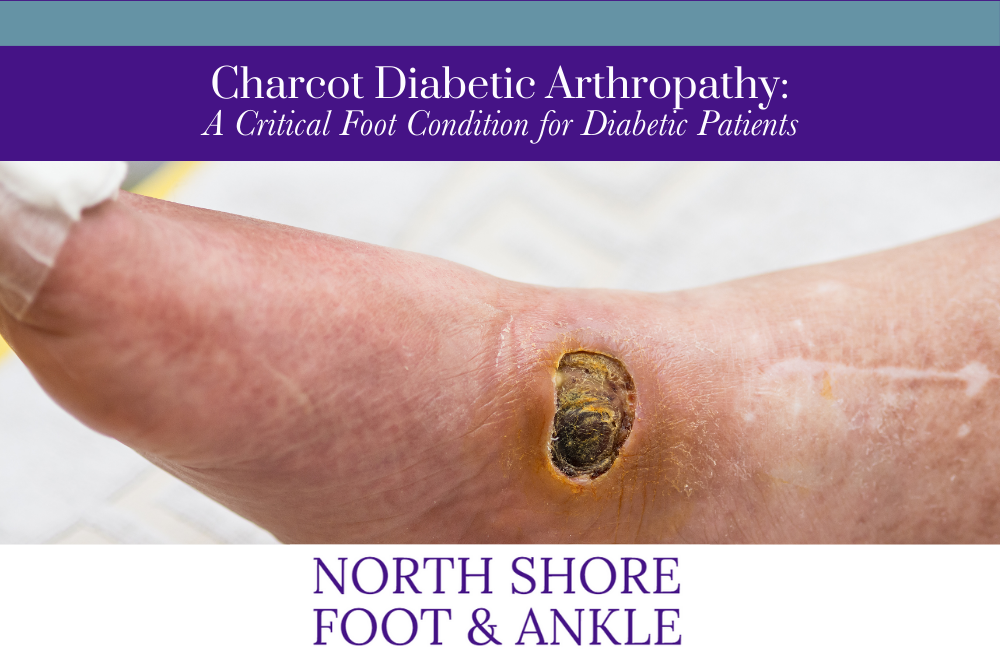Living with diabetes presents unique health challenges, particularly when it comes to foot health. One of the most severe complications of diabetic neuropathy is Charcot Diabetic Arthropathy, often referred to as Charcot Foot. This condition can lead to severe foot deformities, fractures, and even amputations if not addressed promptly. At North Shore Foot & Ankle, our experienced podiatrists are dedicated to helping diabetic patients manage and prevent this complex condition through comprehensive care and early intervention.
What is Charcot Diabetic Arthropathy?
Charcot Diabetic Arthropathy is a progressive, degenerative condition that affects the bones, joints, and soft tissues of the foot and ankle. It typically develops in individuals with significant nerve damage (peripheral neuropathy) as a result of uncontrolled diabetes. Without the protective sensation in their feet, patients may not feel minor injuries or fractures, leading to further damage as they continue to walk on the affected foot.
Key Signs and Symptoms of Charcot Foot
- Swelling – Unusually swollen foot or ankle, often without a history of trauma.
- Redness and Warmth – The affected area may appear red and feel significantly warmer than the other foot.
- Deformity – As the condition progresses, the arch of the foot may collapse, leading to a characteristic “rocker-bottom” shape.
- Instability – Weakness and instability in the affected foot or ankle.
Causes and Risk Factors
Charcot Foot primarily affects people with long-standing diabetes and significant peripheral neuropathy. Risk factors include:
- Uncontrolled blood sugar levels
- Peripheral neuropathy
- Previous foot ulcers or fractures
- Obesity
- Kidney disease or dialysis
- Foot or ankle trauma
Diagnosis and Treatment
Early diagnosis is crucial for preventing severe deformities and permanent disability. At North Shore Foot & Ankle, our approach to diagnosing Charcot Foot includes:
- Physical Examination – Assessing the foot for swelling, redness, warmth, and deformities.
- Imaging Tests – X-rays, MRIs, and bone scans to evaluate the extent of bone and joint damage.
- Vascular and Neurological Assessments – Testing circulation and nerve function in the feet.
Treatment Options
- Immobilization – Casting or bracing to reduce stress on the foot and prevent further damage.
- Custom Orthotics – Specially designed insoles or braces to support and protect the foot.
- Reconstructive Surgery – In severe cases, surgery may be required to correct bone deformities and stabilize the foot.
- Lifestyle Modifications – Blood sugar control, weight management, and regular foot care to reduce the risk of future complications.
Preventing Charcot Foot
- Regular foot exams with a podiatrist
- Maintaining optimal blood sugar levels
- Wearing proper footwear
- Checking your feet daily for signs of injury or swelling
- Avoiding high-impact activities that may strain the feet
Q&A About Charcot Diabetic Arthropathy
Q: How common is Charcot Foot in diabetic patients?
A: While it is relatively rare, it is a serious concern for those with advanced diabetic neuropathy. Early diagnosis and treatment are critical for preventing severe complications.
Q: Can Charcot Foot be cured?
A: Charcot Foot can be managed, but complete recovery may require long-term care and lifestyle changes to prevent further progression.
Q: What happens if Charcot Foot is left untreated?
A: Without treatment, Charcot Foot can lead to severe foot deformities, chronic pain, and even amputation.
Q: How long does it take to recover from Charcot Foot?
A: Recovery can take several months, depending on the severity and treatment approach. Immobilization is often required for 3 to 6 months.
Contact Information for North Shore Foot & Ankle
Lynbrook Podiatry Office
50 Hempstead Ave, Ste B
Lynbrook, NY 11563
Phone: (516) 599-0302
Syosset Podiatry Office
175 Jericho Turnpike, Suite 300
Syosset, NY 11791
Phone: (516) 496-7676
Flushing Podiatry Office
72-03 164 St.
Flushing, NY 11365
Phone: (718) 591-3320
Rosedale Podiatry Office
140-04 248 St
Rosedale, NY 11422
Phone: (718) 949-4844
Plainview Podiatry Office
1144 Old Country Rd,
Plainview, NY 11803
Phone: (516) 942-0620
For more information or to schedule an appointment, contact the nearest North Shore Foot & Ankle location today.









